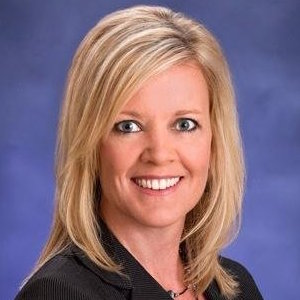Session Abstract – PMWC 2017 Silicon Valley
Session Synopsis: Rare Diseases are genetic, severe and life threatening; by definition they impact 200,000 patients or less. In 2015, 47% of the medications approved by the FDA were for rare diseases. We will explore how this trend has changed drug development: increasing collaboration, advancing personalized medications and personalized disease management tools.
Session Chair Profile
CEO, Innovenn, Inc.
Biography
Ms. Drake brings over 20 years experience in the clinical research industry where she has managed successful cross-functional research teams and implemented development plans for multiple compounds, historically contributing to the development of 14 marketed compounds. In addition, Ms. Drake currently leads biomarker identification teams and facilitates cross-functional, cross-divisional collaborations to develop medical devices, including medical mobile devices that serve patients with rare diseases. In 2013, Ms. Drake founded her second company, Innovenn, Inc. Innovenn’s mission is to partner with advocacy organizations, pharmaceutical, biotechnology, and device companies to support the development of innovative diagnostic, prognostic, predictive, collaborative and preventive patient care solutions that complement new therapeutic advances.
Talk
“Beyond Therapeutics” for Patients with Rare Diseases
Pharmaceutical companies are redefining research objectives to go “Beyond Therapeutics”. Successful initiatives can include development of complementary mobile applications or decision support tools designed with patient input and interdisciplinary collaborations which facilitate broadened use of clinical research data.
Speaker Profile
M.D., Ph.D., Senior Scientific Director, Janssen Research & Development
Biography
Dr. Walton is co-Chair of QSTEPS at Janssen and advises drug development teams on clinical study design promoting coherent drug development across the breadth of Janssen’s clinical research. He has been named a Janssen Fellow and a Fellow of the Society for Clinical Trials.
With degrees from the University of Chicago and Neurology training he joined NIH researching neurotransmitter responses. Dr. Walton joined CBER at FDA in 1993 working on biological product development for neurology, adding additional clinical areas as Branch Chief. As Division Director he had clinical oversight for all non-oncology uses of biological proteins. Moving to the Office of Policy in the Commissioner’s Office gave involvement in agency-wide issues. He joined the Office of Translational Sciences in CDER as the Associate Director for Translational Medicine, fostering science and policies supporting innovations, including areas of biomarkers, clinical outcome assessments, clinical study design methods, and rare disease therapeutics.
Talk
Natural History: Essential for Developing Rare Disease Therapies
Studies in rare diseases often have no successful prior model. Poor design in endpoint selections, how and when to evaluate them, the specific study population, etc. can lead to a study failing to demonstrate efficacy. How deeply understanding the natural history is essential to strong study design will be illustrated.
Speaker Profile
M.D., Ph.D., VP, Global Clinical Development, Otsuka Pharma. Dev. & Com., Inc.
Biography
Dr. Czerwiec guides a multidisciplinary team developing innovative patient-focused pharmaceuticals, devices and disease management tools for disorders like autosomal dominant polycystic kidney disease (ADPKD). ADPKD is an orphan genetic disease which had no effective therapy. PKD1 gene mutations typically lead to kidney failure by age 55. PKD2 gene mutation effects appear 1-2 decades later, but might not lead to dialysis. For 13 years, Otsuka has engaged with patients, experts and regulators to develop and deliver clinical data, tools and drugs to support patients and their physicians in making clinical decisions. We aim to deliver integrated health-care solutions optimizing benefits while limiting risks to individual patients. After obtaining his MD/PhD at University of Miami, Dr. Czerwiec trained as a clinical investigator while an NIH-NICHD endocrine fellow before a 19-year career in R&D at Merck then Otsuka.
Talk
Overcoming Data Challenges in Rare Disease Trials
Developing safe and effective disease-modifying therapies for rare disorders is challenging. Capturing and processing more data can be cost-effective. For trial populations medical history and biomarker data can enable endpoint enrichment and correct for imperfect randomization. For individuals, they support medical decision making for personalized benefit/risk optimization.






